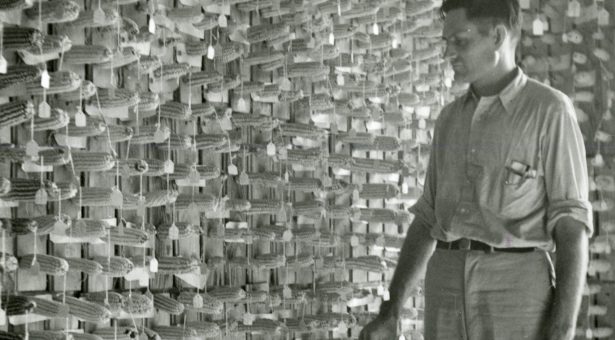From Farm Field to Genebank; A Short History of Seed Keeping – Innes Lecture 2019

It seems obvious: good seed is the foundation of a good harvest. But, where does good seed come from and why does it matter?
Over millennia, farmers around the world devised many on-farm methods for selecting and storing the best seed for future plantings. In the nineteenth century, these seed keeping tasks began to move off the farm, slowly at first but then more dramatically. Government plant breeders and private seed companies took on the tasks of maintaining varieties and selecting seeds for sale.
Today, seed keeping on farms is undertaken only by growers who exist outside the agricultural mainstream either by necessity or by choice, such as subsistence farmers or allotment growers. Although this change brought about gains in productivity, it also generated new concerns. When farmers stopped selecting and storing seed, the diversity of crops in cultivation dwindled.
The talk will explore how this ultimately gave rise to a novel form of seed keeping, the seed bank, tasked with ensuring the possibility of good seed well into the future.
- Tickets are FREE but must be secured in advance
- Thursday 25 April 2019
- 6pm – 7:30pm
Helen Anne Curry
Keynote speaker Helen is Peter Lipton Senior Lecturer in the Department of History and Philosophy of Science at the University of Cambridge.
A historian of recent science and technology, she is particularly interested in the entangled histories of modern biology and biotechnology, industrial agriculture and environmental change. She is currently writing a book on the history of efforts to conserve dignity in agricultural crops.
